Deadly school violence, church shootings, and random bombings by young perpetrators have forced the subject of mental health for children into the national consciousness. Because pediatricians are often the first healthcare practitioners to talk with adolescents who may be experiencing depression, the American Academy of Pediatrics (AAP) recently updated its guidelines for depression screenings.
According to news reports, including an article in the Wall Street Journal, “Statistics show that teen depression is on the rise. In 2016, around 13 percent of U.S. teenagers ages 12-17 had at least one major depressive episode in the past year, compared to almost 8 percent in 2006, according to the Substance Abuse and Mental Health Services Administration. Rates for teenagers ages 18 and 19, which are tracked separately, grew as well: More than 11 percent had a major depressive episode in 2016, compared with 9-10 percent in 2006.
“The survey also found that almost 60 percent of adolescents with a major depressive disorder didn’t receive treatment. Parents don’t always identify the problem—or know what to do about it even when they do. And teens often resist treatment because of the stigma around mental-health issues. Yet adolescents whose depression goes untreated struggle in school, in their relationships, and to engage in activities they enjoy.”
In March 2018, the AAP issued its first updated guidelines in a decade—recommending that pediatricians screen all those ages 12 and older for depression annually and involve families in the assessment. This depression screening is one of a series of pediatric clinical benchmarks assessed by the PCC Electronic Health Records (EHR) Dashboard. This tool, available to every PCC client, offers a quick and easy way to measure vital aspects – both clinical and operational – of the performance of a practice, compared to other pediatric practices around the country.
East Suburban Pediatrics, located just outside Pittsburgh, Pennsylvania, ranks among PCC’s best practices for delivering depression screening to their teenagers, with an almost perfect delivery record according to the AAP’s Bright Futures protocol. The practice, launched in 1983, has 3 separate offices with 5 doctors and 3 nurse practitioners. Their managing partner is Dr. Matthew Keller.
Adolescent Depression Screening – Tips for Success
East Suburban Pediatrics is one of three practices in the nation that tied for first place among PCC clients with amazing depression screening delivery. How does Dr. Keller explain how their consistently good ranking ?
“Depression screening is something that we feel is really important,” he said. “When we instituted universal depression screening for adolescents 5 years ago, it became a part of every well-visit.
“When the nurses check in a teen patient, they typically have the patient alone. The parent is sitting in the exam room while the child is getting weighed and having his or her vision checked. It is at this point that the nurse gives the patient a paper screening for depression.
“For kids ages 11 through 13, we use the Mood and Feelings screening questionnaire (MFQ) which is a little shorter and somewhat simpler language. Starting at age 14 and older, we use the PHQ 9 screening tool.
“It’s amazing how kids are more honest and open with ‘check-boxes’ than they are when they are directly asked about their feelings. We’ve never had a patient refuse to answer the questions. We have very few kids who do not fill in their responses, but these are typically children that have developmental challenges and are unable to understand the questions.
“The depression screening has become so much a part of our well-visit routine that the kids expect it. They know they will get weighed, get their vision checked and I fill out the depression screening. Over time, this screening has been integrated into our entire well-care program.”
The screening allows the practitioners at East Suburban Pediatrics to open up a conversation.
“When I am seeing the adolescent alone, we can talk more casually,” Dr. Keller said. “For example, I can say, ‘hey, I noticed that when you filled in the questions about your moods, feelings, and depression, you checked that you had no problems. This makes you the happiest 16-year old on the planet!’ Most times the kids will say, ‘yeah, I’m pretty happy.’
“On the flip-side, these questions provide us an opportunity to pursue potential problems that the patient might be having, based on the boxes that they checked. I believe discussing these responses is a nice conversation starter. Rather than saying ‘So, are you feeling depressed today?’ and perhaps making the kid feel defensive, we ease into the subject.
“At the same time, when I bring the parent back into the room and I’m talking to them about the child I can offer, ‘your child and I were chatting, and he’s filled out this questionnaire over the years. On this visit I noticed some things that suggest that we should talk a little about his moods.’
“This tool simply presents a nice way to talk about things that are sometimes difficult to talk about and it allows us to give better care.”
The PCC Dashboard is a Valuable Tool for East Suburban Pediatrics
“We use the PCC Dashboard frequently,” Dr. Keller said. “It’s really helpful in a couple different areas. First, it enables us to learn how we are doing in certain clinical areas, compared with other practices. Secondly, it shows how we are doing with our own practice over time.
“One good example of its use is to see how we are doing with our evaluation and management (E&M) coding distribution. About 4 years ago, some of us in the practice were doing a really poor job with coding.
“The PCC Dashboard was a good way to bring up the topic, look at our coding practices, do some training and then observe, over time, how this has improved. Of course, we still have some ways to go in this area, but we are definitely improving and part of the reason for this is the Dashboard.”
Is your pediatric practice EHR performing as well as you would like? Contact us for a free, no-obligation consultation on the only pediatric-focused electronic health records platform from PCC.




